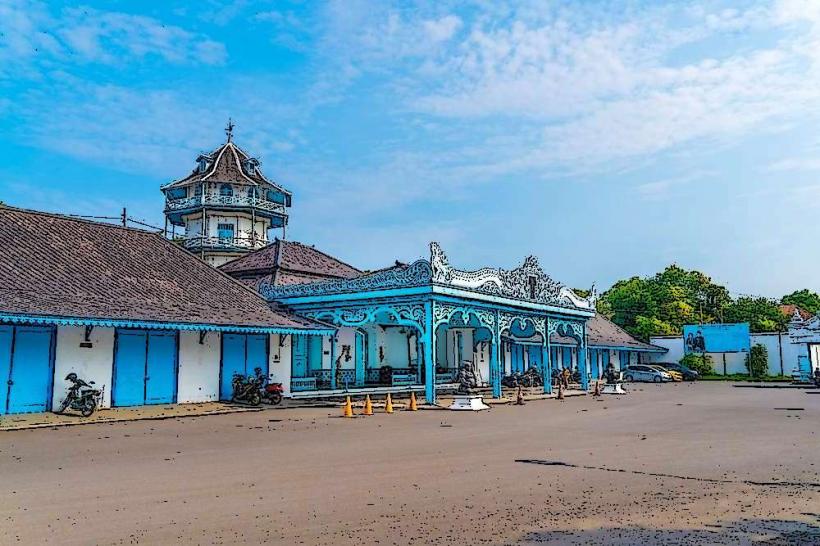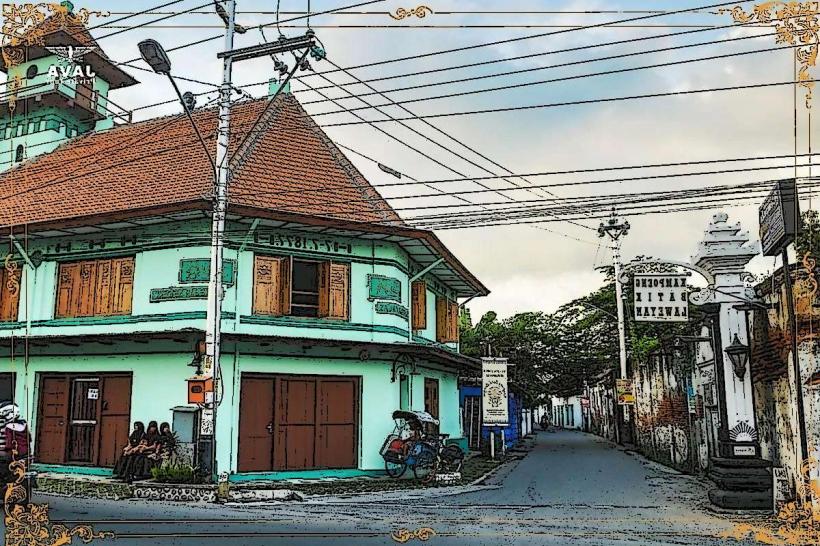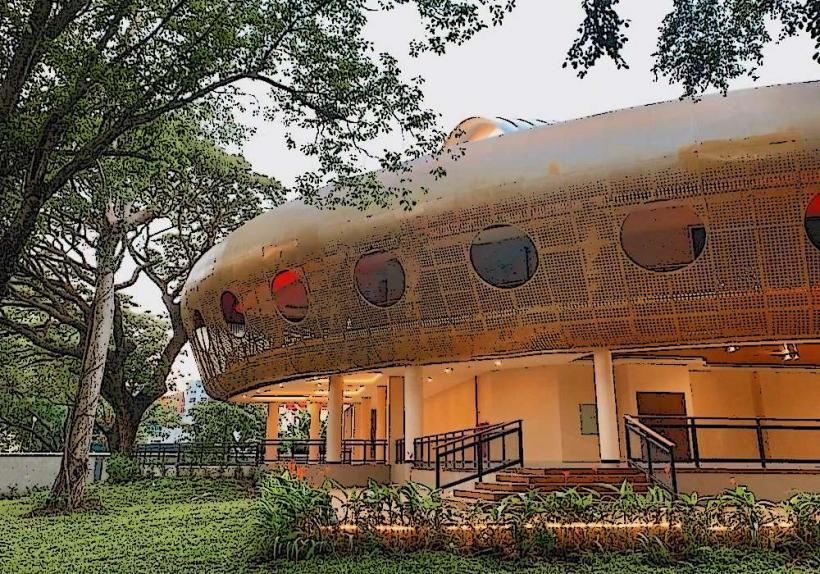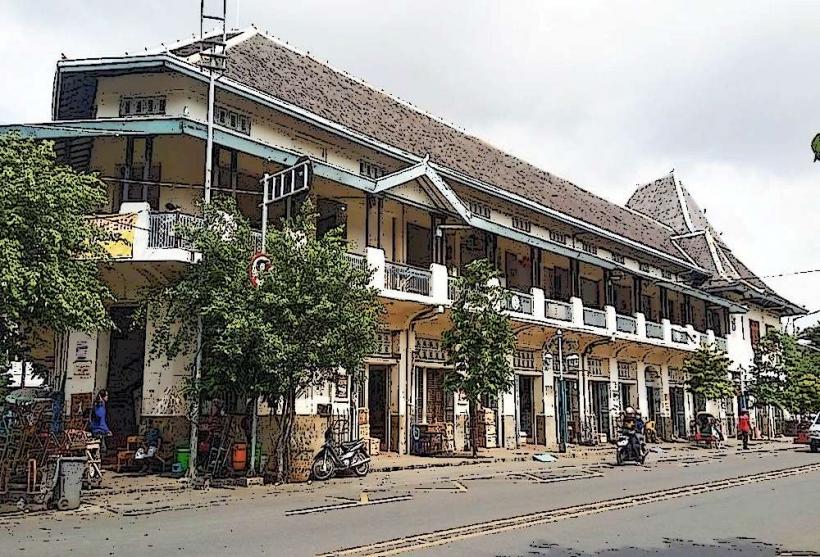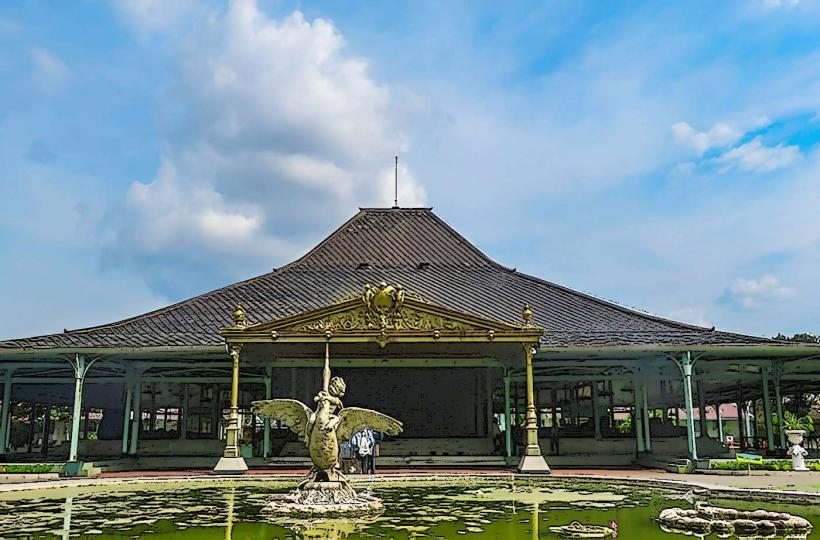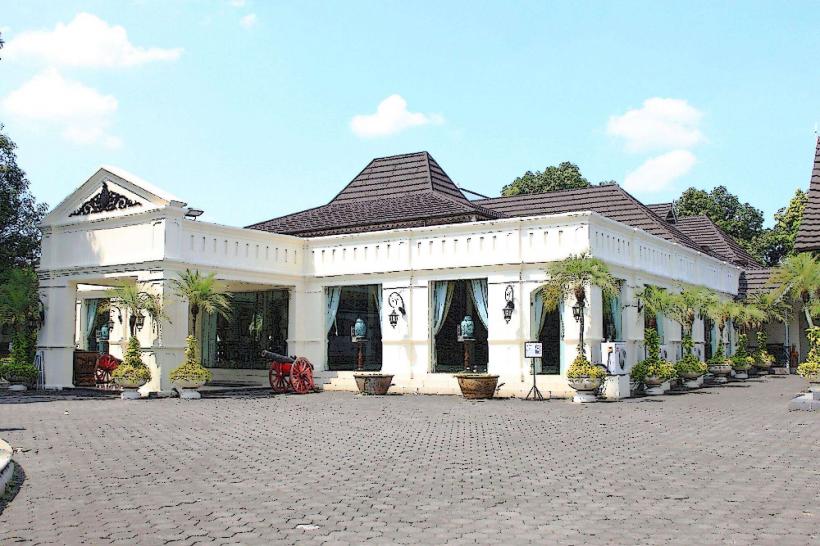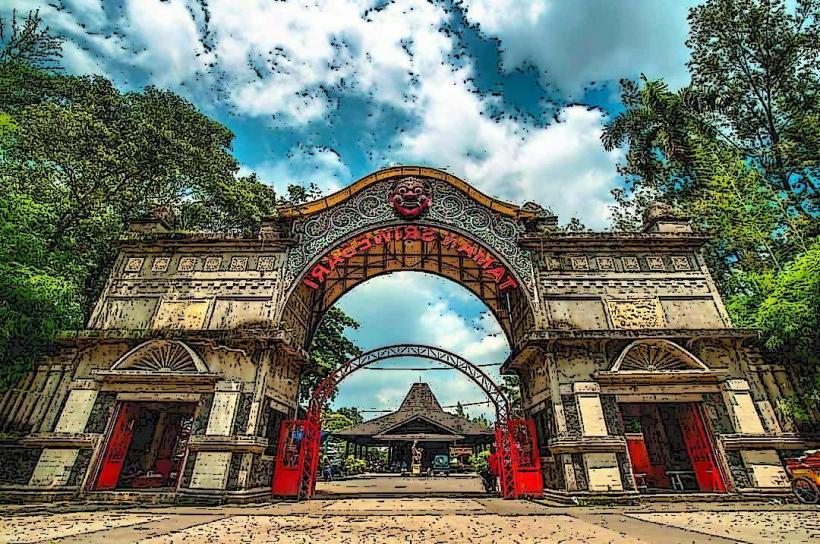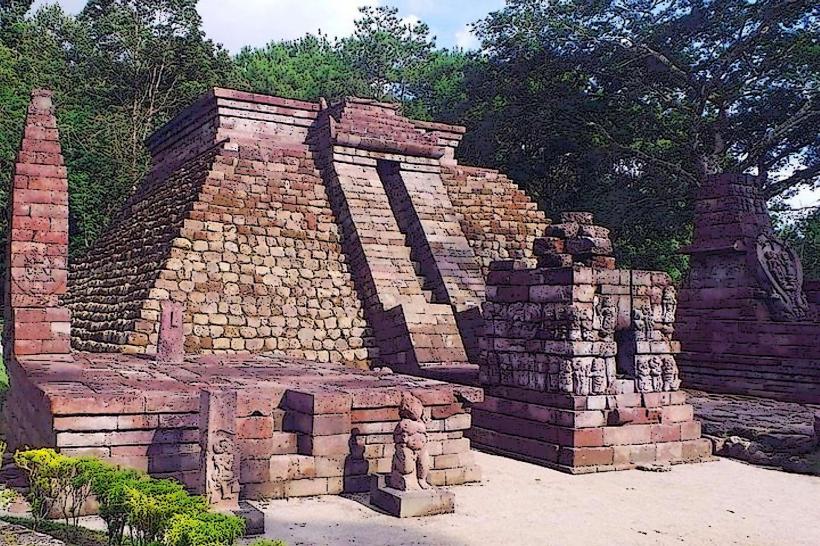Information
Landmark: Triwindu Antique MarketCity: Surakarta
Country: Indonesia
Continent: Asia
Triwindu Antique Market: A Treasure Trove of Javanese Artifacts and Antiques
Triwindu Antique Market is one of the most popular and well-known antique markets in Surakarta (Solo), Central Java, Indonesia. Established in the early 20th century, this market is renowned for offering a wide variety of vintage goods, antiques, and collectibles, many of which reflect the rich cultural heritage of Java and Indonesia as a whole.
The market attracts both local collectors and tourists from around the world who are eager to discover rare and authentic items that tell the story of Indonesia’s past, ranging from traditional furniture to historic artifacts, ceramics, textiles, and Javanese arts.
1. Historical Background of Triwindu Antique Market
Origins and Establishment:
- Triwindu Antique Market has its roots in the colonial era, dating back to the early 1900s. It originally served as a local market for selling various goods but gradually evolved into a specialized marketplace for antiques as interest in collecting historical items grew.
- The name "Triwindu" comes from the Javanese word "Tri" meaning three, and "Windu," which refers to a period of eight years. The name is thought to be a reference to the market's historical connection with the changing cycles of time and commerce.
Development of the Market:
- Over the years, Triwindu Antique Market has become an important cultural hub in Surakarta, as it preserves the traditions of antique trading in the region.
- It continues to serve as a place where people can find not only antique furniture, art, and decor but also historic tools, coins, ceramics, and even antique weapons. The market is also a place where local artisans sell handcrafted items that may have historical influences.
2. What You Can Find at Triwindu Antique Market
The market is filled with a fascinating array of items, many of which offer a glimpse into Indonesia’s long and diverse history. Visitors can expect to find:
Antique Furniture:
- Javanese wooden furniture, including intricately carved armoires, chests, cabinets, and chairs, often made from teak and other durable woods.
- Dutch colonial furniture from the 17th and 18th centuries, reflecting the influence of European design on the island during colonial times.
Traditional Ceramics and Pottery:
- Javanese porcelain and stoneware, including tea sets, plates, and vases, often with intricate designs and floral patterns.
- Majolica pottery, which blends European and Javanese styles, and blue-and-white ceramics.
Javanese Textiles and Batik:
- Batik fabric, both vintage and handmade, showcasing the elaborate and traditional designs of Indonesian batik artistry.
- Songket (traditional woven textiles), ikat fabrics, and silk items with intricate designs.
Antique Art and Sculptures:
- Traditional Javanese statues, carvings, and artworks, including Hindu-Buddhist and Islamic artifacts.
- Wooden masks, puppets, and carved figures from wayang kulit (shadow puppetry).
Historical Coins and Currency:
- Collections of old coins, currency notes, and medals, some dating back to ancient kingdoms or the colonial period.
Antique Weapons:
- Traditional keris (daggers), swords, and other weaponry, which hold cultural and spiritual significance in Javanese tradition.
Vintage Collectibles:
- Items such as old radios, typewriters, photographs, and other nostalgic artifacts from Indonesia's colonial period and mid-20th century.
3. The Market Atmosphere
Vibrant and Bustling Environment:
- Triwindu Antique Market is a vibrant and lively place to explore, with its rows of stalls and shopfronts displaying an array of fascinating objects. The market is housed in a traditional Javanese-style building, with a mix of open-air sections and covered spaces, creating a unique atmosphere for visitors.
Personalized Shopping Experience:
- The market is often less commercialized than some larger markets, allowing for a more personal and intimate shopping experience. Visitors are encouraged to engage with the local vendors who are typically knowledgeable about the history and significance of the items they are selling.
- Many of the items in the market have stories behind them, with vendors often eager to share their knowledge about the origins and significance of various antiques.
Bargaining Culture:
- Bargaining is a common practice in the market, and it’s part of the fun when shopping. Visitors can often negotiate prices, especially if they’re buying multiple items or larger pieces of antique furniture.
4. Cultural and Historical Importance
Preserving Javanese Heritage:
- Triwindu Antique Market plays a significant role in preserving Javanese cultural heritage. By selling and trading items that represent various historical periods, the market helps keep alive the traditional craftsmanship and artistry of Java.
- The market is a living museum of sorts, where visitors can experience a direct connection with the past through physical artifacts. It’s also an important place for those interested in collecting Javanese antiques as well as rare items from Indonesia’s rich history.
Cultural Exchange:
- Triwindu also serves as a cultural exchange point where local people and tourists can learn about the diverse history and culture of Java and Indonesia. The presence of both locals and international visitors helps promote greater understanding of Javanese customs, art, and history.
5. Visiting Triwindu Antique Market
Location:
- Triwindu Antique Market is located in the city center of Surakarta (Solo), making it easily accessible for both local residents and visitors. It is situated near other major landmarks in Surakarta, including the Sultan's Palace (Keraton Surakarta) and Pasar Klewer, another well-known market in the city.
Opening Hours:
- The market is typically open every day from 8:00 AM to 5:00 PM. However, the best time to visit is in the morning, as the market is less crowded, and visitors can have a more relaxed shopping experience.
Getting There:
- The market is centrally located in Surakarta, so visitors can easily reach it by taxi, motorbike, or public transport. Many hotels in Surakarta offer easy access to the market, which is also within walking distance from other points of interest in the city.
6. Tips for Visiting Triwindu Antique Market
Take Your Time: The market is filled with numerous stalls and shopkeepers, each with unique items. Take your time to wander through the market and explore all the different sections to discover hidden treasures.
Be Prepared to Bargain: As with most markets in Indonesia, bargaining is part of the experience. Be ready to negotiate prices, especially if you’re buying antiques or multiple items.
Learn About the Items: Before purchasing, try to learn about the history and significance of the antiques you’re interested in. Many vendors are happy to share the stories behind their items.
Bring Cash: While some shops may accept credit cards, it’s always a good idea to carry cash when shopping for antiques, as it’s often preferred by sellers.
7. Conclusion
Triwindu Antique Market is a must-visit destination for anyone interested in Javanese art, history, and culture. The market offers an opportunity to explore and purchase authentic antiques, traditional crafts, and vintage collectibles while learning about the rich heritage of Surakarta and Java. Whether you’re a collector, a history enthusiast, or a casual shopper, Triwindu Antique Market provides a fascinating glimpse into Indonesia’s past and is a unique part of the cultural landscape of Surakarta.

